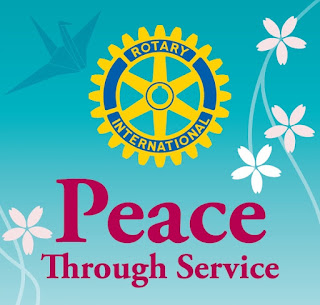Many types of people can apply to become a peace fellow. The eligibility requirements state that one must have a bachelor's degree and three years of work experience. You must also be able to speak English and have proficiency in a second language along with strong leadership skills. Rotary seeks to form a diverse group of fellows and they come from NGOs, government agencies, education, law, United Nations agencies and journalism, to name the most popular fields. There are five peace centers around the world and ten fellows are placed at each one every year. They include: International Christian University in Japan, University of Queensland in Australia, University of Bradford in England, Uppsala University in Sweden and Duke University in North Carolina.
Each program is a little different, but my program in Tokyo includes a month of language training (August) followed by two ten-month academic years with an internship in the middle during the summer break. This internship is called an "Applied Field Experience" and can be anything from an internship with an NGO or a government agency or an independent research project. It can't be done in our home country or in the country where we are studying. I'm not sure what I want to do yet but I'm excited about the chance to do something different.
What's exceptional about the Rotary Peace Fellowship is that it's fully funded and fully supported. Every expense is covered from transportation, tuition, books, housing and includes extra money for travel and research. The experience is fully supported in that we not only have a Peace Center coordinator at our university that helps us with all the logistics of moving abroad but are also assigned a local host Rotarian as well. So far, I've been very impressed with the organization and efficiency of the program and Rotary International in general.



















Post a Comment